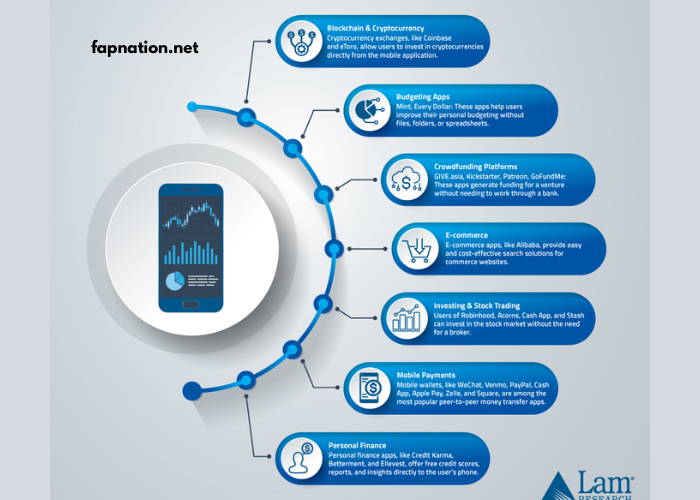Running a small business or startup comes with a multitude of challenges, and managing finances is often one of the most daunting. Proper financial planning and savvy money management can make the difference between a thriving enterprise and one that struggles to keep afloat. In this article, we’ll explore practical finance tips for small business owners and entrepreneurs that can help streamline operations, maximize profits, and set the foundation for long-term success.
Why Financial Management is Crucial for Small Businesses
For small business owners and entrepreneurs, financial management is not just about balancing the books. It’s about setting up a system that allows you to scale efficiently, plan for the future, and avoid common pitfalls that can lead to cash flow problems or unexpected financial crises. Effective financial strategies not only ensure that your business stays compliant with tax laws but also help you make informed decisions about investments, growth opportunities, and operational adjustments.
The Core Elements of Financial Management
Before diving into specific tips, let’s break down the core elements of financial management that every business owner should understand:
- Cash Flow Management: Cash flow is the lifeblood of any business. A positive cash flow means that your business has enough funds to cover operational expenses, pay employees, and reinvest in growth. Cash flow management involves regularly monitoring incoming and outgoing funds to ensure you don’t run into financial shortfalls.
- Budgeting and Forecasting: Creating a detailed budget allows business owners to plan for the future and allocate resources effectively. Forecasting helps predict revenue, expenses, and profit margins, providing a financial roadmap for your business.
- Tax Planning: Taxes can be a major burden on small business owners if not planned for correctly. Understanding tax deductions, credits, and the best structure for your business can save you significant amounts of money and ensure compliance with tax laws.
- Profitability and Cost Control: Maximizing profits while controlling costs is essential for any business. Identifying areas where you can reduce expenses without sacrificing quality or service will directly impact your bottom line.
Key Finance Tips for Small Business Owners
1. Maintain a Separate Business Account
One of the first steps in organizing your finances as a small business owner is to open a separate business checking account. Mixing personal and business finances can lead to confusion, difficulty tracking business expenses, and potential issues come tax season. A dedicated business account ensures that you can easily separate personal and business transactions, making financial management more straightforward and transparent.
Benefits of a Separate Business Account:
- Easier tracking of business expenses
- Simplified tax filing and deductions
- Professional image when dealing with clients and vendors
- Clearer financial reporting and budgeting
2. Set a Realistic Budget and Stick to It
A budget is a tool that helps you plan your finances over a specific period. When creating a budget for your small business, be realistic about your expected revenue and expenditures. Factor in both fixed costs (like rent or payroll) and variable costs (such as marketing or supplies). A detailed budget will give you insight into where your money is going and allow you to adjust when necessary to avoid overspending.
Tips for Creating an Effective Business Budget:
- Use accounting software or spreadsheets to track income and expenses.
- Be conservative when estimating revenue, especially in the early stages.
- Regularly review and update your budget to reflect changes in your business environment.
3. Establish an Emergency Fund
Even if your business is currently profitable, it’s important to set aside funds for emergencies. An emergency fund acts as a financial cushion to help you weather unexpected situations such as economic downturns, equipment failures, or unexpected costs. Having an emergency fund ensures that your business can continue to operate smoothly in times of uncertainty.
How Much Should Your Emergency Fund Be?
A general rule of thumb is to save at least three to six months’ worth of operating expenses in an emergency fund. The amount may vary depending on the nature of your business and its revenue streams.
4. Invest in Professional Accounting Services
While many small business owners attempt to manage their finances on their own, working with a certified accountant can save you time, reduce the risk of errors, and help ensure compliance with tax regulations. A professional accountant can also offer valuable advice on tax planning, cost control, and profitability optimization.
The Role of an Accountant in Your Business:
- Filing taxes and ensuring compliance with local and federal tax laws.
- Offering insights into optimizing cash flow and profitability.
- Assisting in setting up financial systems and processes.
5. Track Your Cash Flow Regularly
Keeping an eye on your cash flow is essential to maintaining financial stability. A positive cash flow allows you to pay bills, employees, and invest in growth opportunities. Conversely, a negative cash flow can lead to debt, late payments, and even business closure.
How to Improve Cash Flow:
- Invoice clients promptly and follow up on overdue payments.
- Negotiate favorable payment terms with vendors to extend your payables.
- Keep track of your inventory to avoid tying up cash in unsold goods.
- Look for opportunities to reduce costs or increase revenue.
6. Leverage Technology and Accounting Software
There are numerous software solutions available to help small business owners streamline financial operations. Accounting software such as QuickBooks, Xero, or FreshBooks can automate invoicing, expense tracking, and financial reporting, saving you time and reducing the risk of manual errors. Additionally, tools like payroll software, point-of-sale systems, and budgeting apps can improve efficiency and offer real-time insights into your business’s financial health.
Benefits of Accounting Software:
- Automates key financial processes, saving time.
- Helps you generate reports and track key financial metrics.
- Reduces the likelihood of errors and discrepancies.
- Improves communication with accountants and tax professionals.
7. Separate Personal and Business Finances
Another vital finance tip is to clearly separate personal and business expenses. This distinction will not only help you keep your financial records organized but also improve your business’s credibility. Having separate accounts, credit cards, and loans for business-related activities will ensure that you don’t mix personal expenses with those related to your business.
8. Consider Using a Business Credit Card
A business credit card can help manage cash flow, track expenses, and build your business’s credit profile. However, it’s crucial to use business credit cards wisely, as they often carry higher interest rates than personal credit cards. Always ensure that you pay off balances on time to avoid high-interest charges and build a positive credit history for your business.
Key Benefits of Business Credit Cards:
- Helps build your business credit score.
- Earns rewards or cashback on purchases.
- Provides a separate line of credit for business-related expenses.
- Can offer higher credit limits than personal cards.
9. Plan for Taxes in Advance
Taxes are a significant concern for small business owners, and failing to plan ahead can result in unexpected liabilities and penalties. Understanding your tax obligations early can help you avoid surprises and ensure you’re setting aside enough money to cover them.
Tax Planning Strategies for Small Business Owners:
- Set aside a percentage of your revenue each month to cover taxes.
- Take advantage of tax deductions available to small businesses, such as equipment depreciation and business-related travel expenses.
- Consult a tax advisor to ensure that you’re filing correctly and maximizing deductions.
10. Build a Strong Financial Network
Networking with other small business owners, financial professionals, and investors can help you gain new insights into financial management and business growth. Establishing relationships with professionals such as accountants, financial planners, and business consultants will give you access to advice and support when you need it most.
How to Build a Financial Network:
- Attend industry events, trade shows, and conferences.
- Join local small business associations or chambers of commerce.
- Build relationships with vendors, lenders, and other entrepreneurs.
11. Review Financial Statements Regularly
Regularly reviewing your financial statements is crucial for understanding the health of your business. Key documents such as the balance sheet, income statement, and cash flow statement provide valuable insights into your profitability, liquidity, and financial position.
Key Financial Statements Every Entrepreneur Should Review:
- Income Statement (Profit & Loss): Shows your revenue, costs, and profits over a specific period.
- Balance Sheet: Details your assets, liabilities, and equity, offering a snapshot of your business’s financial health.
- Cash Flow Statement: Tracks the inflow and outflow of cash, helping you monitor liquidity.
Conclusion
Managing finances as a small business owner or entrepreneur is an ongoing process that requires planning, diligence, and adaptability. By following these finance tips—ranging from separating personal and business finances to leveraging technology and seeking professional guidance—you can create a solid financial foundation for your business, reduce risks, and maximize growth opportunities.
Remember that good financial management is not about perfection but about creating systems that allow you to make informed decisions and adjust when needed. With the right approach, you can steer your business toward success while avoiding the common financial pitfalls that many small businesses face.



